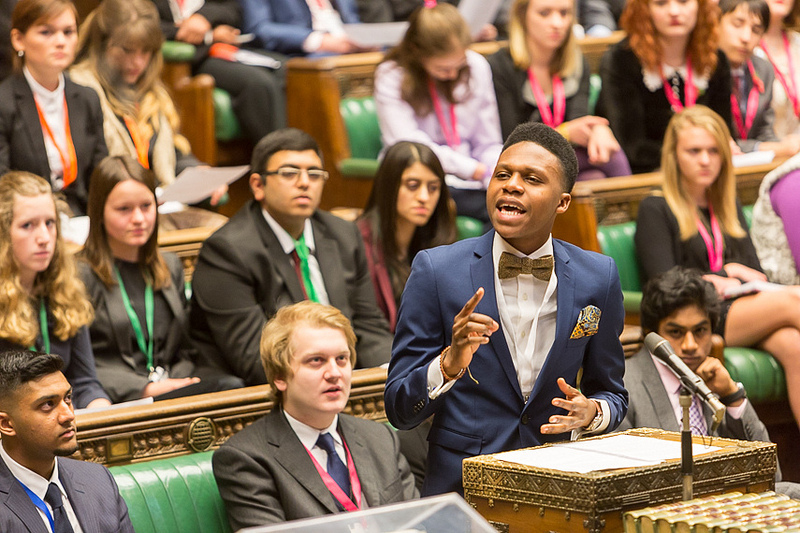
If anything is going to turn people off politics it’s the sight of grown men shouting at each other about whose friends are dodgier.
It’s been Parliament Week in Westminster, when lots of events are held to encourage people to engage with and understand politics and parliament.
Seems some of the politicians didn’t get that memo.
If anything is going to turn people off politics it’s the sight of grown men shouting at each other about whose friends are dodgier.
That was what the nation was treated to on Wednesday, in a particularly grubby Prime Minister’s Questions that saw David Cameron and Ed Miliband trade insults about the people they’ve taken donations from.
The PM was keen to make hay at the expense of Ed Miliband’s connections to Paul Flowers, former head of the Co-operative Bank but who since the weekend has had allegations of drug-taking, procuring rent boys and viewing pornography added to his CV.
Though, frankly, you’d think all of the above would be about as useful as Methodism if applying to run a multi-billion pound bank.
Yet that is where Flowers found himself until, to use David Cameron’s phrase, he became “this man who has broken a bank”.
The Co-operative Bank was an easy lender of cash to their spiritual brethren in the Labour party and the Tories are keen to try to connect the two in the public’s minds.
They particularly want to tarnish Ed Balls, hoping the public will make a link between a drug-addled church minister who crashed a bank with a power-crazed Cabinet minister who they claim crashed the economy.
Balls claims the Tories are trying to smear him.
Which is a bit rich coming from someone who spent Wednesday lunchtime repeatedly shouting: “Have you taken cocaine?” at the Prime Minister.
In the Lords things are more civilised, but hardly any more engaging to ordinary people.
For example, last week Lord James raised the pressing issue of children pressing their bare bottoms up against car windows. “A pastime which is, I believe, called mooning,” he explained.
His wife had been horrified by the numbers of young bums she’d seen in minibus windows on the way to Twickenham to watch last weekend’s rugby.
He added: “I am not going to explain it to your Lordships because we are in mixed company, but the sight of some 40 children mooning simultaneously is not a pretty one.”
The subsequent sight in the stadium of 30 grown men knocking lumps out of each other in pursuit of a leather egg doesn’t seem to have fazed Lady James.
Parliament doesn’t need to be like this either aggressive and confrontational or archaic and out of touch.
Last Friday the House of Commons was full and debates were carried out in a respectful, encouraging and fun atmosphere.
Of course, there were no MPs there.
It was the one day in the calendar when the Youth Parliament takes over the Commons.
Speaker John Bercow must take credit for this innovation and he certainly enjoys it, even joshing with one of the younger MYPs: “We short people should stick together!” The Speaker’s stature is meant to be a sore point with him.
Among the MYPs’ speeches on four subjects as they sought to determine what their main campaign should be for 2014 there was not a duff contribution and, tellingly, no abuse of opponents.
Arguments were listened to respectfully, interjections generally applauded and the opening and closing statements in proposing or opposing a particular cause were outstanding.
It is no overstatement to say that some of the best oration heard in the House all year came from the young representatives.
They behaved in a far more mature manner than their grown-up counterparts.
There were only two things missing from the Youth Parliament sitting there were too few outrageous haircuts for cynical old hacks to laugh at and only a handful of serving MPs turned up to witness it.
That’s disappointing, because if politicians really want to engage they could take a few lessons from the next generation.

Enjoy the convenience of having The Sunday Post delivered as a digital ePaper straight to your smartphone, tablet or computer.
Subscribe for only £5.49 a month and enjoy all the benefits of the printed paper as a digital replica.
Subscribe